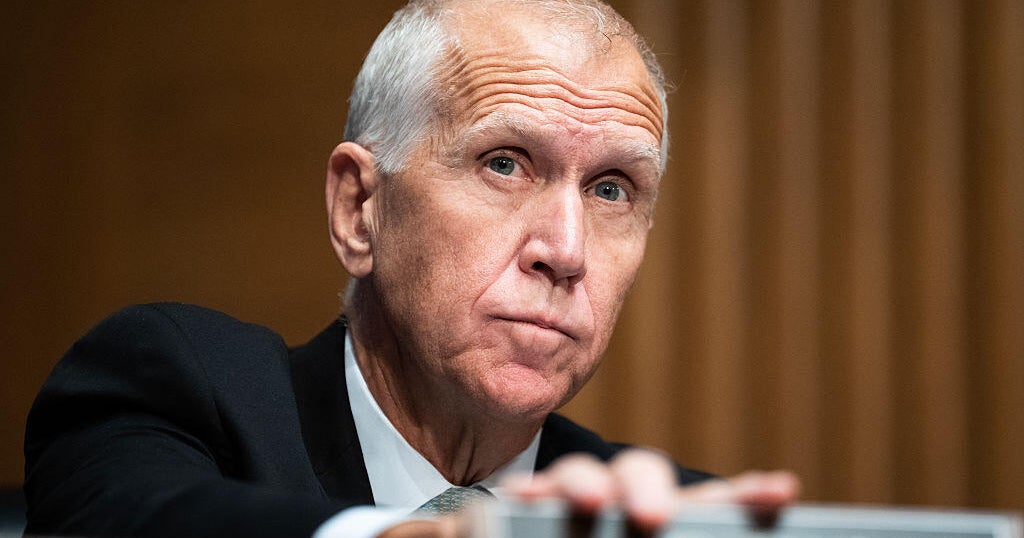Republican Senator Thom Tillis of North Carolina has announced that he will not seek reelection in 2026, following pressure from former President Donald Trump, who threatened to endorse a primary challenger against him. In a statement made public on Sunday, Tillis expressed his discontent with the polarizing political climate in Washington, hinting at the toll it has taken on his enthusiasm for another term. His withdrawal opens a critical Senate seat in North Carolina, which has a history of Republican representation.
| Article Subheadings |
|---|
| 1) Announcement of Non-Reelection |
| 2) Reasons Behind the Decision |
| 3) Trump’s Influence in the Decision |
| 4) The Impact on North Carolina Politics |
| 5) Future of the Republican Party in North Carolina |
Announcement of Non-Reelection
Senator Thom Tillis made his decision to not run for reelection in 2026 known on Sunday, a move that marks a significant turning point in his political career. The announcement came shortly after former President Donald Trump openly criticized him for his lack of support for Trump’s proposed spending and tax legislation. In his public statement, Tillis explained that he had been contemplating his future in politics and weighed the impacts of further political strife against spending quality time with his family.
Reasons Behind the Decision
Tillis elaborated on his feelings about the current political landscape during his announcement, stating, “I haven’t been excited about running for another term.” He cited frustration with “navigating the political theatre and partisan gridlock,” which has defined much of Congress under current conditions. The desire for a more balanced life with his family has ultimately driven his choice, reflecting broader concerns many lawmakers have regarding their own mental health and work-life balance.
Trump’s Influence in the Decision
The senator’s announcement appears closely linked to Trump’s recent criticisms, especially regarding the massive tax and spending bill, which Tillis opposed due to concerns about cuts to Medicaid. Trump had indicated his willingness to find a primary opponent for Tillis, which may have accelerated Tillis’s decision. This dynamic underlines the ongoing importance of Trump’s influence within the Republican Party, especially in key battleground states like North Carolina.
The Impact on North Carolina Politics
The announcement leaves a significant vacancy in North Carolina’s political landscape. Historically, the state has leaned Republican in presidential elections, except in 2008. With the upcoming 2026 election, the race for this Senate seat is anticipated to be highly competitive. National Republican Senatorial Committee Chairman Tim Scott expressed confidence in maintaining a conservative leadership in North Carolina, indicating that Republicans will continue to hold sway in the region’s political matters.
Future of the Republican Party in North Carolina
As North Carolina gears up for the 2026 elections, the future of the Republican Party will be pushed into the spotlight. Given that Trump has had substantial influence in the state, candidates attempting to fill Tillis’s void may need to align closely with Trump’s agenda to secure support from the party base. This opens an avenue for potential new leaders to emerge, but poses challenges as they will also have to navigate established party lines and varying constituent expectations.
| No. | Key Points |
|---|---|
| 1 | Senator Thom Tillis will not seek reelection in 2026. |
| 2 | His decision follows pressure from former President Donald Trump. |
| 3 | Tillis cited a desire to prioritize family over political career. |
| 4 | His non-reelection opens a vital Senate seat in a historically Republican state. |
| 5 | There is speculation about potential primary challengers supported by Trump. |
Summary
The announcement of Senator Thom Tillis not seeking reelection marks a pivotal moment in North Carolina politics, reflecting not only his personal choices but also broader trends in Republican alignment and the influence of former President Donald Trump. As candidates begin to emerge to fill this important Senate seat, the dynamics within the state’s political landscape will be closely watched, offering insights into the evolving state of the Republican Party.
Frequently Asked Questions
Question: Why did Senator Tillis decide not to run for reelection?
Senator Tillis indicated that he wished to prioritize his family over the tumultuous political landscape and was not excited about the prospect of navigating partisan gridlock for another term.
Question: How did Trump influence Tillis’s decision?
After Trump criticized Tillis for opposing his tax and spending legislation, he suggested potential primary challengers, which likely added pressure and urgency to Tillis’s decision.
Question: What implications does Tillis’s announcement have for North Carolina politics?
Tillis’s announcement opens a key Senate seat, prompting speculation about potential Republican contestants and the future dynamics of party leadership in North Carolina.


